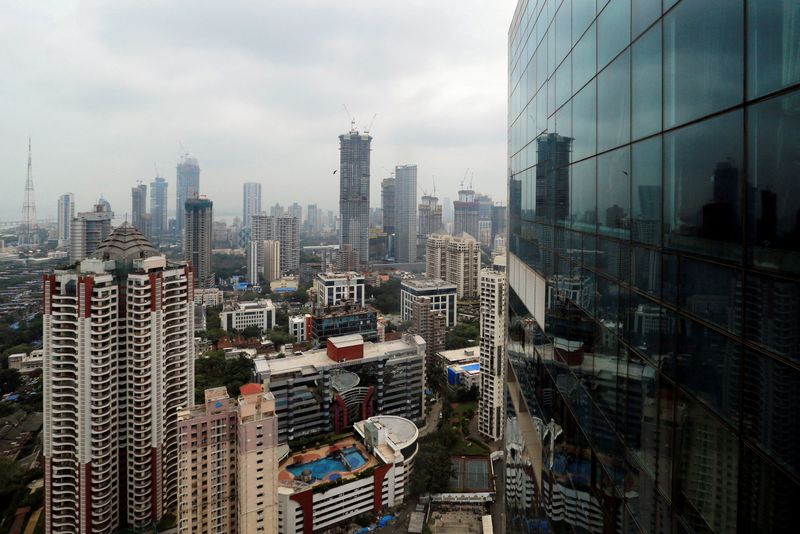By Ankur Banerjee
SINGAPORE (Reuters) - As Asia's banking sector navigates a peak in global interest rates and risks of slower growth, investors are wagering that banks in India and Indonesia have the strongest loan and profitability profiles to provide returns next year.
Over the past 18 months Asian central banks tracked the U.S. Federal Reserve tightening monetary policy to battle inflation, but their interest rates hikes were smaller and slower, resulting in better interest income for the region's banks without loan growth suffering.
Banking indexes in India, Indonesia and Thailand have all outperformed the broader MSCI Asia ex-Japan index as well as the S&P banks index since March 2022, when the Fed started raising rates.
But now, as a steep global rates cycle peaks and the spectre of recession looms, investors are turning selective and focusing on banks that kept funding costs down while expanding loans.
"The hope is that we're going to see a mild rate-cutting cycle coming into next year, nothing too aggressive ... that should generally be positive for the financial sector in Asia because it should spur loan growth," said Frederic Neumann, chief Asia economist at HSBC.
Neumann points to India, where banks have delivered double-digit loan growth over the past few months due to rising demand for credit in the world's most populous but under-banked nation.
Loan growth at Asian banks is estimated to rise from 4.5% this year to 10% next year, LSEG data shows, with banks in India and Indonesia leading with 15% and 11% growth, respectively.
Analysts at J.P. Morgan say Asian banks, excluding China's, have led in the global demand for aggregate loans, and their interest margins of 2.4% in 2022 were already at pre-pandemic levels.
Xin-Yao Ng, investment manager of Asian equities at UK fund manager abrdn, says the easy wins for banks from rising borrowing costs are over, which makes him selective.
"We think rates have peaked or are near peak, but the way down will be less steep than the way up. Thus, this headwind will be more gradual, not an earnings shock," Ng says.
Ng likes banks in India and Indonesia, given the better economic growth in those economies and ability of banks to sustain margins.
LSEG data shows profits at banks in India and Indonesia will grow 13% and 11% respectively next year, nearly double the 6% average rise across Asia-Pacific banks.
Indian banking bellwethers HDFC, ICICI, Kotak Mahindra Bank and Axis Bank comprise a major part of the portfolio of Vinay Agarwal, Asia portfolio manager and director at FSSA Investment Management.
Agarwal said the increase in disposable income in India will mean consumers will want more than just a bank deposit, leading him to pick banks which are market leaders even in asset management and insurance businesses.
Indonesia's Bank Central Asia (BCA) "is just a class apart," said Agarwal.
Morgan Stanley added BCA to its focus list for Asia-Pacific excluding Japan this month, citing its strength in deposit franchise and loan pricing.
The risk for investors lies in the rich valuations of these banks. HDFC and ICICI trade at a price-to-book (P/B) ratio, a metric that compares stock price with underlying assets, of 3, while Axis trades at 2.3 and BCA at 5.
That compares to price-to-book ratio for MSCI's index for all-country Asian banks of 0.9.
India and Indonesia also face elections next year, which could mean more volatility in those markets.
Laggards are in markets such as Singapore, Hong Kong and South Korea, whose more mature financial sectors and low interest rates reduce the scope for banks to manoeuvre.
Profit growth expectations too are lower in these developed markets. Banks in Australia are estimated to see a drop of 5% in profit in 2024 while profits at Singapore banks will be flat. South Korean banks are expected to see a profit growth of 4%.
For banks in China where monetary policy is still being loosened, the market is in the process of pricing in continued net interest margin pressure, analysts at Morgan Stanley wrote this month, while retaining their underweight stance.
(This story has been corrected to add the dropped word 'want' in paragraph 14)
